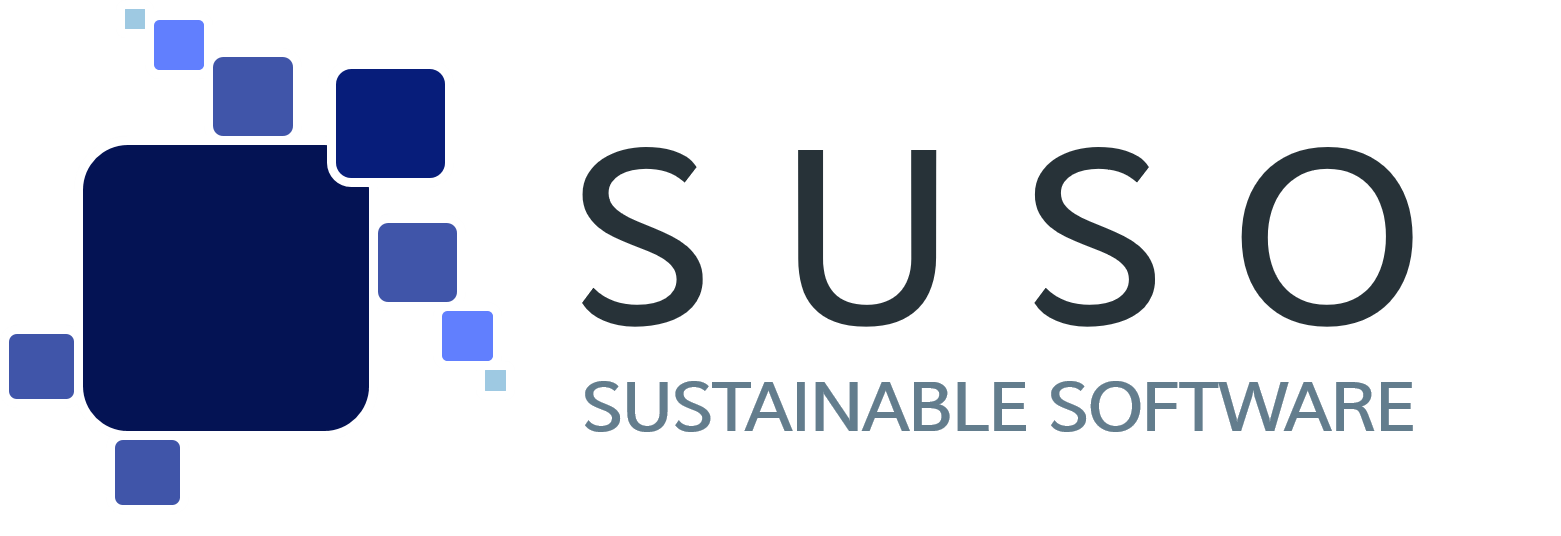The 5 advantages of sustainable software development
Sustainability is the attempt to make the world a better place – on both a large and small scale. From reducing CO2 emissions through green coding to designing accessible websites and different pricing models for different user groups, there are numerous approaches to acting more sustainably. But what are the advantages of sustainable software development? Why should software companies commit to sustainability?
More and more software vendors are turning to sustainable products and services to make their business practices more environmentally and socially responsible. After all, sustainability in software development offers not only environmental and social benefits, but also economic ones.
In this article, we would like to present five reasons why sustainability in software development pays off. Our target audience are software companies and software practitioners who are interested in the topic of sustainability or already consider sustainability aspects in their products and services. And are looking for further arguments to underpin their commitment.
Advantage 1: Sustainable software as business and karma improvement
Software companies that focus on sustainability and communicate their efforts publicly can build a positive image and present themselves as responsible and future-oriented. This can lead to a gain in reputation in the long term. On the other hand, sustainability can have a positive impact on business as well as on the company’s own well-being. Software providers who are committed to sustainability can also ease their own conscience and give the feeling that they are doing something positive for the environment and society.
The concept of karma comes from various religious and spiritual traditions. It refers to the idea that actions have consequences that return in this or a future existence. Even if someone is not spiritual or does not believe in these beliefs, the concept of “karma” can still serve as a metaphor for the idea. Namely, that actions have consequences that can affect our lives. So, when we do good deeds that aim to improve the world around us, we can impact ourselves in positive ways. On the environment, on other people, and on ourselves. This, in turn, can impact our business by improving our image, building trust and establishing long-term relationships.
Sustainability is not a short-term trendy issue, but a long-term development that is becoming increasingly important. Software companies that are committed to sustainability can position themselves as responsible players in the long term and thus secure their competitiveness in the long term.
Use our tools for sustainable software
Our three tools help you acquire the knowledge, skills, and financial resources you need to develop sustainable software products and services that meet social, environmental, and economic needs. By using these tools, you can position yourself as a leader in sustainable software development and help create a better future for all.
Advantage 2: Sustainable software for cost reduction and higher profit margins
Sustainable software development can help to optimize the use of resources and thereby reduce costs. By using energy-efficient algorithms and server infrastructures, for example, energy consumption can be reduced. More efficient use of resources such as storage space, bandwidth or computing power can also save material and maintenance costs. This not only reduces operating costs, but can also lead to software products and services being offered more cost-effectively.
But it’s not just costs that can be reduced through sustainable software development – higher profit margins are also possible. This is because software companies that are committed to sustainability can position themselves as pioneers in this area. And thus develop new customers and markets. In addition, sustainable products and services can have a higher value for customers because they are environmentally and socially responsible. This can lead to customers being willing to pay more for these products and services, resulting in higher profit margins.
Sustainable software development can also help minimize potential risks associated with environmental and social impacts. For example, violations of environmental laws or social standards can lead to financial or legal consequences. Such risks can be avoided or reduced through a sustainable orientation.
Advantage 3: Sustainable software for customer and employee loyalty
Sustainability can also help strengthen a software company’s positive image. More and more customers are interested in buying products and services from software companies that are committed to sustainability and environmental protection. By integrating sustainability into software development, a company can demonstrate its environmental and social awareness. In the second step, it can then position itself as a responsible player. This can strengthen customer trust and promote long-term customer loyalty. Sustainable software can appeal to a larger target group and thus increase the chances of market success.
In addition, sustainability can also help to attract and retain qualified employees. Among the younger generation in particular, sustainability is increasingly seen as an important factor when choosing an employer. Software companies that take sustainability seriously and implement this in software development can present themselves as an attractive employer and thus attract talented professionals.
Sustainability in marketing offers a variety of opportunities to communicate the responsibility of your software company and to stand out from the competition.
Advantage 4: Sustainable software as a competitive advantage
Sustainability can also serve as a driver for innovation in software development. Software companies that focus on sustainability often need to find new ways to be more efficient with resources or use more environmentally friendly technologies. This can lead to new products and services and differentiate the company from competitors. As such, sustainability can help unlock new business opportunities.
One example is the growing demand for green IT solutions that help software companies reduce their CO2 emissions. By integrating sustainability into their software products and services, companies can position themselves as pioneers in the field of green IT and benefit from the growing business opportunities. Sustainability can thus be a driver for innovation. Software companies that are committed to sustainability can develop new software that meets the needs of a sustainable society. As a result, they have the opportunity to tap into new market potential.
Overall, then, sustainability in software development offers not only environmental and social benefits, but also economic opportunities. Software companies that recognize and exploit these opportunities can hold their own in the market and be successful in the long term.
Advantage 5: Sustainable software for receiving public fundings
Sustainability is an important topic for many governments and public institutions. For this reason, there are often funding programs and grants for software companies that develop sustainable products and services. By integrating sustainability into software development, companies can therefore take advantage of additional opportunities for public funding.
In summary, sustainability in software development not only offers environmental and social benefits. On top of that, it opens up additional opportunities for public funding. Software companies that are committed to sustainability can thus not only contribute to environmental protection and position themselves as responsible players. No, they also reap economic benefits.
Public funding for social, environmental and economic sustainability of software products and services is available for a variety of reasons, including environmental protection, social responsibility, innovation and competitiveness, public interest and meeting societal needs. Grants can help reduce carbon emissions, improve the participation of people with disabilities, foster innovation, and meet societal needs.
Take a look at our article “Mastering applications for sustainability fundings: A guide for sustainable software companies”.
Conclusion
It is understandable that software companies are interested in generating their profits and expanding their market position. At the same time, it is important to understand that the topic of sustainability is not only a moral responsibility, but also offers an economic opportunity. Sustainability can help improve a company’s competitiveness while reducing its environmental impact and assuming social responsibility.
Sustainable development is the basis for a healthy economy that is profitable in both the long and short term. When software practitioners integrate sustainability into their work, they can not only help reduce environmental impact and promote social justice. They can put their business on a sustainable footing. Demand for sustainable software is steadily increasing,. Companies that operate in this space have a competitive advantage over their peers.
By integrating social, environmental and economic sustainability into their work, software practitioners can also improve their reputation and gain the trust of their customers. Customers are becoming increasingly selective when choosing their products and services. They prefer companies that care about the environment and society.
Overall, software practitioners should address the issue of sustainability. This not only represents a moral obligation, but also offers an economic opportunity. Integrating sustainability into software development can help: improve competitiveness, reduce costs, and strengthen customer and employee loyalty.





